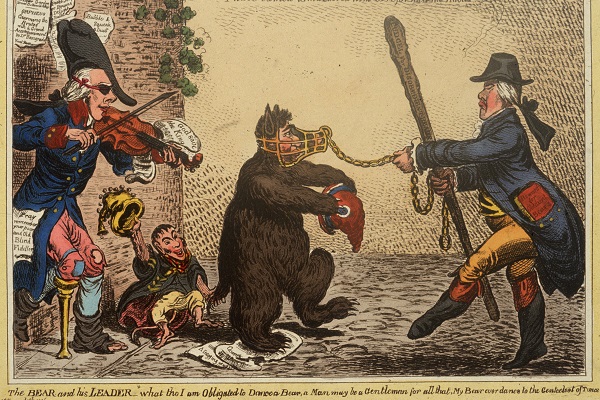Henry Addington, first Viscount Sidmouth, was briefly and, on the whole, ingloriously Prime Minister at the beginning of the nineteenth century and then spent nearly ten years as Home Secretary at a time when Britain seemed as close as it had ever been to violent revolution. In both capacities he displayed an unwavering conservatism which seemed inexcusable to his political opponents and sometimes even caused disquiet among his supporters. He was a relic of the eighteenth century who signally failed to adjust to the realities of the nineteenth: when the Great Reform Bill was passed in 1832 it seemed to him bound to lead within a few years to the collapse of civilised society. ‘I hope,’ he told Lord Grey, ‘God will forgive you on account of this Bill. I don’t think I can.’ When civilisation conspicuously failed to collapse he was disconcerted but convinced that Armageddon had merely been postponed.
What would he have made of Britain today? Still no Armageddon? The Queen is in Buckingham Palace, the Cavendishes in Chatsworth, God is in his Heaven, all must be right with the world. But he would have been dismayed to find that Buckingham Palace and Chatsworth were open to the public and that every man – however small his property – had the right to vote. Still worse; the same was true of women; he would have been stupefied to hear that a woman had recently reigned in Downing Street. He was a kindly man who would have rejoiced in the fact that the working classes were better fed, better housed, better educated than had been true in his day, but he would have mourned the fact that Britain’s consequence in the world had shrunk and viewed with distaste its intimate relationship with Europe, particularly its natural enemy, the French.
Most of all he would have deplored the degeneration of his beloved Tory Party. Peel had been bad enough: what could one make of Cameron, with his trendy ideas and wishy-washy liberalism? Most recently, he would have been appalled by the fact that the Conservatives were supporting gay marriage. He had heard about homosexuality, but it was not a subject that one talked about in public, still less condoned. If you were caught out then, like Castlereagh, you did the decent thing and cut your throat. To propose that two men or two women should be allowed to contract a legal relationship with each other defied the laws of nature, to call that relationship marriage would have seemed madness. In 2013 Addington would have joined UKIP or, more probably, retired to the country and sulked. Today’s Conservative Party would have been no place for him.
Philip Ziegler’s biography of Sir Henry Addington (1965) has been re-issued by Endeavour Press (£2.99)






Comments